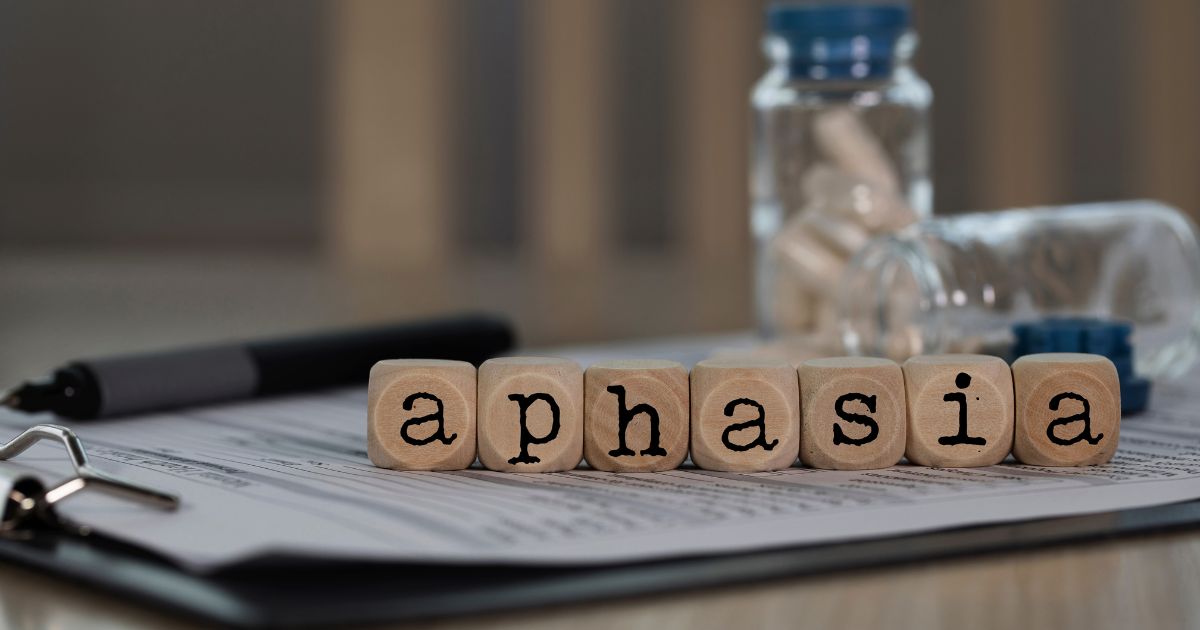June is the Stroke Association’s Aphasia Awareness Month, a time dedicated to raising awareness about aphasia, a language and communication disorder that can affect individuals. Although stroke is the leading cause of aphasia, it’s important to recognise that this condition can also arise from other neurological conditions and injuries.
Understanding Aphasia
Aphasia is a complex language and communication disorder resulting from damage to the brain’s language centres. While stroke is the most common cause of aphasia, it can also stem from other conditions such as traumatic brain injury, brain tumours, neurodegenerative disorders, brain infections, aneurysms, and even brain surgery. It affects a person’s ability to speak, understand, read, write, and use numbers.
Despite these challenges, aphasia does not affect intelligence. Individuals with aphasia continue to think in the same way; they simply face obstacles in effectively expressing their thoughts. This condition can significantly impact independence, work life, and the ability to communicate.
The Impact and Misconceptions
Amongst stroke survivors, 4 in 10 (40%) experience aphasia soon after their stroke. While speech difficulties are the most obvious symptom, aphasia can also affect reading, writing, and numerical skills, including managing finances and telling the time. It’s crucial to recognize that aphasia affects each person differently, and no two individuals experience the exact same difficulties. Unfortunately, misconceptions about aphasia persist.
Research by the Stroke Association in Wales found that only 24% of people believe aphasia solely affects speech, and 10% mistakenly assume that it cannot improve. It’s essential to dispel these misconceptions and promote a better understanding of aphasia.
Aphasia Awareness Month: Advocating for Support and Empathy
Aphasia Awareness Month serves as an opportunity to bring attention to this often-misunderstood language and communication disorder. Throughout June 2023, individuals, organisations, and communities come together to spread awareness, enhance communication access, and advocate for those living with aphasia.
“When the Words Away Went”: A Documentary to Inspire Understanding
To raise awareness, the Stroke Association has released a powerful documentary titled When the Words Away Went. This enlightening film follows the journeys of three stroke survivors as they regain their voices and rebuild their lives.
By sharing their experiences, challenges, and triumphs, the documentary aims to equip viewers with knowledge, understanding, and the confidence to support those living with aphasia. Through personal stories, viewers gain valuable insights into the daily struggles and achievements of individuals with aphasia.
Watch the film at the Stroke Association website.
NRC Medical Experts: experts in neurological conditions and neurorehabilitation
At NRC Medical Experts, we understand the significant impact of stroke and aphasia on individuals and their families. Our team includes Consultants in Rehabilitation Medicine and Speech & Language Therapist Expert Witnesses.
With their expertise, they play a crucial role in providing comprehensive assessments, expert reports, and testimony to support legal cases involving individuals with aphasia.
If you require an expert witness with in-depth knowledge of aphasia and neurorehabilitation, NRC Medical Experts are here to help you.
Find an medical expert witness>>
Book a pre-instruction conversation>>


